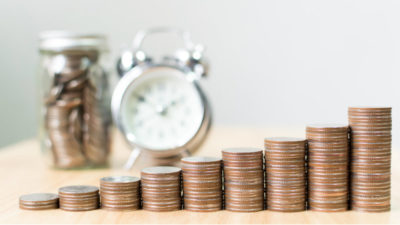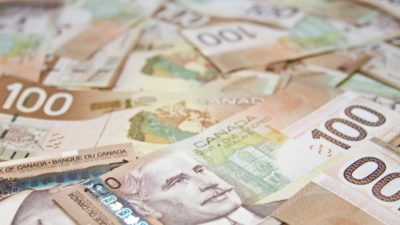Free money is tough to come by. In the investing world, however, there are a few tricks that you should know that could add a much-needed boost to your returns. For example, many companies offer dividend reinvestment programs that give you a 5% bonus for any dividends you reinvest in the company’s stock.
There are other programs that give you something akin to free money, but they’re not offered by any private company. The following are four government freebies that everyone should be aware of.
Registered Education Savings Plan (RESP)
The RESP is a tax-sheltered education savings account that can help you, your family, or friends save for a child’s education after high school. It allows savings for education after high school to grow tax free. Interest income and capital gains earned within an RESP are not taxed as long as the funds remain in the plan.
A big plus is that withdrawals from an RESP are taxed at the student’s tax rate. This means that typically they pay little to no tax on withdrawals.
Canada Education Savings Grant (CESG)
This is a $500 annual freebie as long as you contribute enough to your children’s education savings. The CESG is money the government adds to your child’s RESP to help their savings grow. After high school, your child can withdraw the money to help pay for either full-time or part-time studies.
The basic CESG provides 20 cents on every dollar you contribute, up to a maximum of $500 on an annual contribution of $2,500. If you cannot make a contribution in any given year, you can catch up in future years.
Registered Retirement Savings Plan (RRSP)
The RRSP has been around for more than 50 years and has two big tax benefits.
First, it gives you an upfront tax deduction. This benefits those in higher tax brackets since contributions to this plan lower your taxable income. If you’re going to be saving for retirement in an investment account, you might as well keep some of the money that would be going towards your taxes.
Second, these accounts shelter investment income that would otherwise generate annual tax on interest, dividend income, and capital gains. All those years of tax-free compounding beat being fully taxed each year like ordinary accounts.
Tax-Free Savings Account (TFSA)
This is essentially the opposite of the RRSP. A TFSA doesn’t offer any upfront tax deduction, so you still pay your full share of taxes in year one. All withdrawals, however, are totally tax free. You also get the same ongoing sheltering of taxes while the capital is growing, which is similar to the RRSP.
While you have to wait to reap the tax benefit, a TFSA is a great idea for those in lower tax brackets who plan on being in higher tax brackets later in life. You pay the low rate today and skip the higher rate tomorrow. The TFSA is also suitable for low-income seniors receiving OAS and GIS. Unlike RRSP withdrawals, TFSA withdrawals don’t trigger clawbacks of OAS or GIS benefits.
What should you buy with your free money?
Whether you’re investing the free money you got from the CESG or simply using one of the tax-sheltered accounts mentioned, you will need to come up solid investment ideas to help grow your savings.
The Motley Fool recently published our Top Stocks for July with our analysts’ best picks. It includes dividend stalwarts such as Canadian National Railway Company (TSX:CNR)(NYSE:CNI) and Canadian Utilities Ltd. (TSX:CU) as well as high-growth companies like DH Corp. (TSX:DH) and ONEX Corporation (TSX:OCX).
Whichever investment you choose, make sure you’re taking advantage of any grants or tax-free accounts offered by the government.







